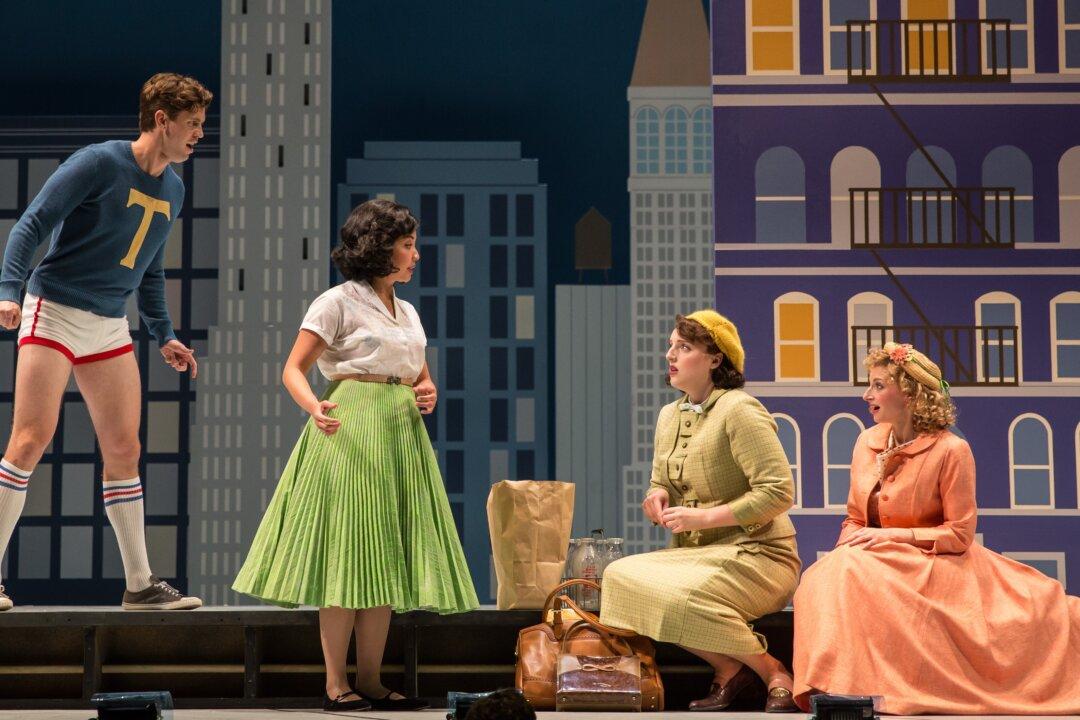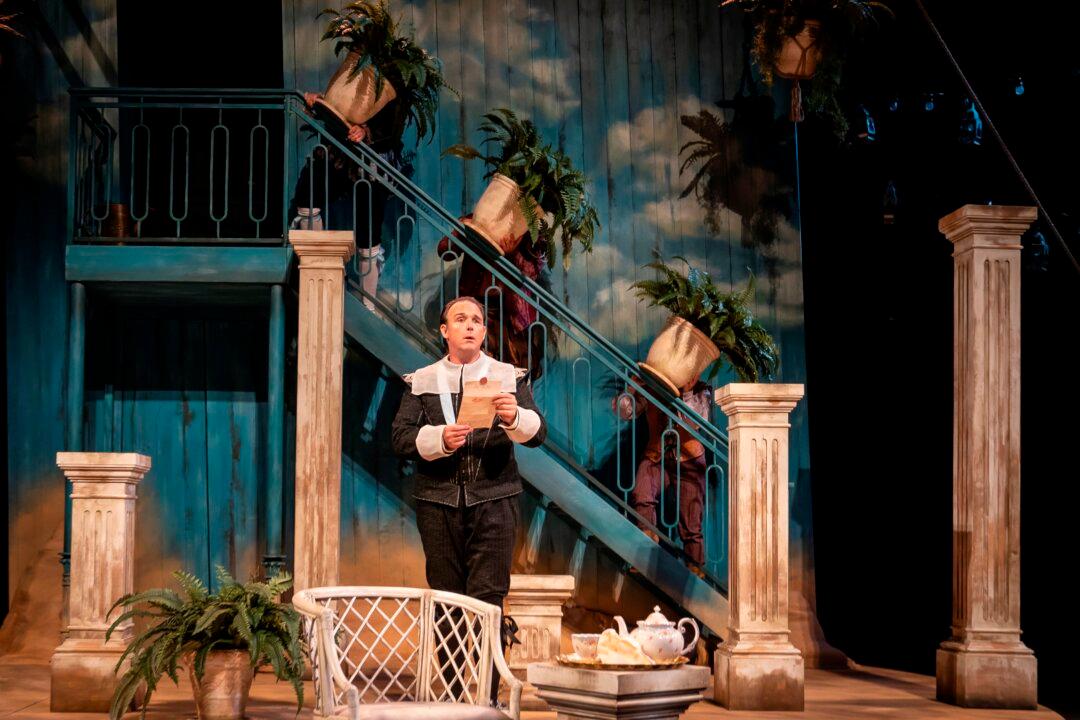CHICAGO—Hope and naivety arrive in New York City in the early ‘50s.
How refreshing to be reminded of what New York’s Greenwich Village represented to aspiring artists for a good chunk of the 20th century: excitement, freedom from small minds in small towns, the possibility of becoming someone different, and for the young, the possibility of just becoming. Director Mary Zimmerman sums up that image with her delightful “Wonderful Town.”
This work has sat on the shelves too long.





